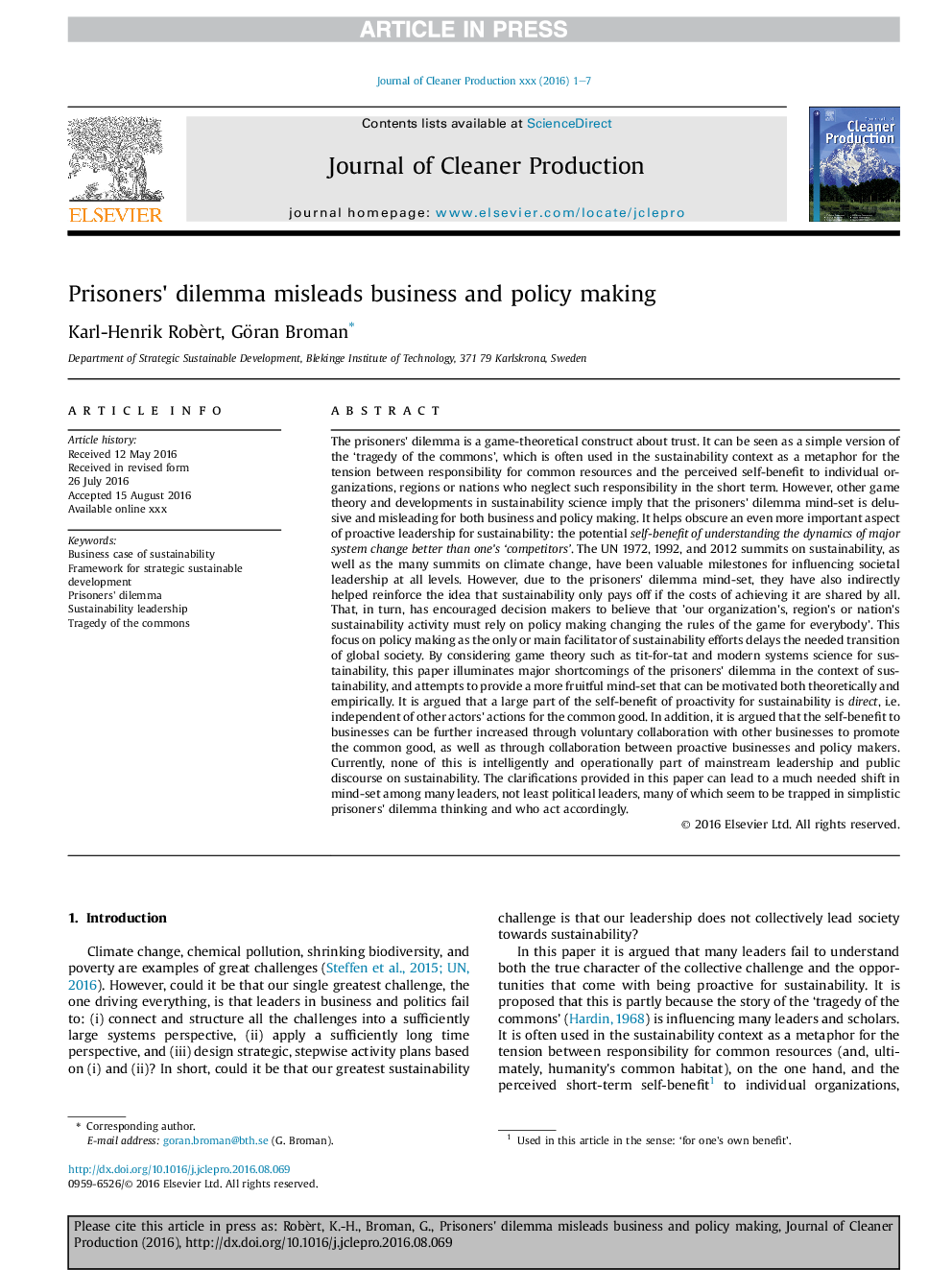| Article ID | Journal | Published Year | Pages | File Type |
|---|---|---|---|---|
| 5480631 | Journal of Cleaner Production | 2017 | 7 Pages |
Abstract
The prisoners' dilemma is a game-theoretical construct about trust. It can be seen as a simple version of the 'tragedy of the commons', which is often used in the sustainability context as a metaphor for the tension between responsibility for common resources and the perceived self-benefit to individual organizations, regions or nations who neglect such responsibility in the short term. However, other game theory and developments in sustainability science imply that the prisoners' dilemma mind-set is delusive and misleading for both business and policy making. It helps obscure an even more important aspect of proactive leadership for sustainability: the potential self-benefit of understanding the dynamics of major system change better than one's 'competitors'. The UN 1972, 1992, and 2012 summits on sustainability, as well as the many summits on climate change, have been valuable milestones for influencing societal leadership at all levels. However, due to the prisoners' dilemma mind-set, they have also indirectly helped reinforce the idea that sustainability only pays off if the costs of achieving it are shared by all. That, in turn, has encouraged decision makers to believe that 'our organization's, region's or nation's sustainability activity must rely on policy making changing the rules of the game for everybody'. This focus on policy making as the only or main facilitator of sustainability efforts delays the needed transition of global society. By considering game theory such as tit-for-tat and modern systems science for sustainability, this paper illuminates major shortcomings of the prisoners' dilemma in the context of sustainability, and attempts to provide a more fruitful mind-set that can be motivated both theoretically and empirically. It is argued that a large part of the self-benefit of proactivity for sustainability is direct, i.e. independent of other actors' actions for the common good. In addition, it is argued that the self-benefit to businesses can be further increased through voluntary collaboration with other businesses to promote the common good, as well as through collaboration between proactive businesses and policy makers. Currently, none of this is intelligently and operationally part of mainstream leadership and public discourse on sustainability. The clarifications provided in this paper can lead to a much needed shift in mind-set among many leaders, not least political leaders, many of which seem to be trapped in simplistic prisoners' dilemma thinking and who act accordingly.
Related Topics
Physical Sciences and Engineering
Energy
Renewable Energy, Sustainability and the Environment
Authors
Karl-Henrik Robèrt, Göran Broman,
